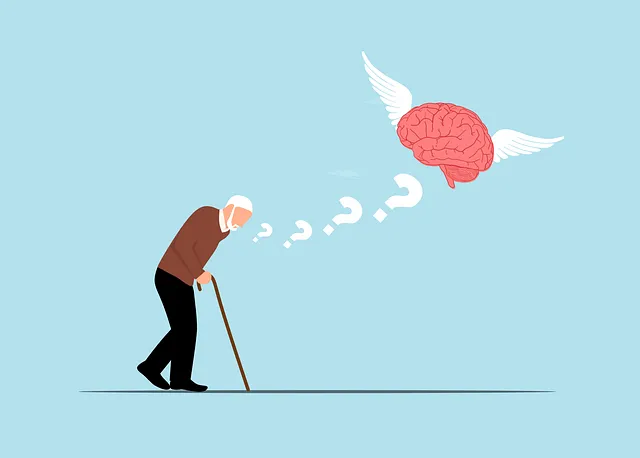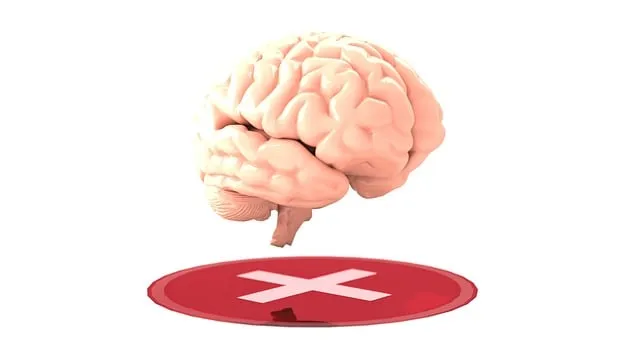Louisville's Kaiser offers comprehensive inpatient mental health services that go beyond symptom management, focusing on holistic care and social skill development. Their tailored programs, led by a multidisciplinary team, include evidence-based practices like Social Skills Training (SST) to improve patient recovery and reintegration into community life. SST empowers individuals with coping mechanisms for real-world situations, reducing burnout and enhancing emotional well-being through group therapy, role-playing, mindfulness, and stigma reduction campaigns.
Social skills training is a powerful tool in mental health recovery, especially within specialized inpatient settings like Louisville’s Kaiser Inpatient Mental Health Services. This article explores the significance of social interaction for mental well-being and how structured training can mitigate challenges faced by individuals with various conditions. We delve into effective strategies used at Kaiser, providing insights into enhancing social skills to improve overall patient outcomes. Discover how these techniques contribute to successful recovery journeys in a clinical environment.
- Understanding the Importance of Social Skills for Mental Health Recovery
- Louisville's Kaiser Inpatient Mental Health Services: An Overview
- The Role of Social Skills Training in Inpatient Mental Health Care
- Common Mental Health Conditions and Their Impact on Social Interaction
- Effective Strategies for Social Skills Training in a Clinical Setting
Understanding the Importance of Social Skills for Mental Health Recovery

In the pursuit of mental health recovery, Louisville’s Kaiser inpatient facilities offer specialized services that recognize the profound impact of social skills on overall well-being. Beyond managing symptoms, effective treatment integrates strategies to enhance social interactions and build supportive networks. This holistic approach understands that successful recovery often hinges on an individual’s ability to connect with others, express emotions, and navigate social environments—skills crucial for reintegration into community life and maintaining long-term mental health stability.
At Louisville Kaiser, programs like compassion cultivation practices equip individuals with tools to foster meaningful connections, reduce burnout, and cultivate resilience in interpersonal settings. These strategies, essential for both patients and healthcare providers alike, are particularly relevant in the healthcare field where burnout prevention is a growing concern. By addressing social skills, Louisville Kaiser goes beyond treating symptoms, empowering individuals to thrive in their personal and professional lives, ultimately contributing to improved mental health outcomes.
Louisville's Kaiser Inpatient Mental Health Services: An Overview

Louisville’s Kaiser Inpatient Mental Health Services offer a comprehensive program designed to support individuals with mental health conditions. This specialized care is tailored to meet the unique needs of each patient, focusing on mental wellness and promoting confidence boosting strategies for long-term recovery. The services provided include individual therapy sessions, group support meetings, and various activities aimed at resilience building.
The facility leverages a multidisciplinary team consisting of psychiatrists, psychologists, social workers, and nurses to deliver holistic treatment. By combining evidence-based practices with a nurturing environment, Kaiser aims to empower patients to manage their conditions effectively. This approach not only addresses the immediate mental health concerns but also equips individuals with the tools necessary for sustained mental wellness in their daily lives.
The Role of Social Skills Training in Inpatient Mental Health Care

Social Skills Training (SST) plays a pivotal role in Louisville’s Kaiser Inpatient Mental Health care program, offering a holistic approach to patient recovery and rehabilitation. SST goes beyond traditional therapy by focusing on practical, real-world skills necessary for successful social interactions, which are crucial for maintaining emotional well-being. This structured training empowers patients with coping skills development, enabling them to navigate social situations more effectively.
The techniques used in SST at Kaiser Louisville target the roots of many mental health struggles, promoting inner strength development and fostering a sense of community among patients. By engaging in group activities and role-playing scenarios, individuals learn emotional well-being promotion techniques that can be applied immediately after discharge, enhancing their overall quality of life.
Common Mental Health Conditions and Their Impact on Social Interaction

Mental health conditions, such as depression, anxiety disorders, and schizophrenia, significantly influence an individual’s social interactions and overall quality of life. These conditions can manifest in various ways, affecting one’s ability to communicate, engage in social activities, and maintain relationships. For instance, individuals with depression might withdraw from social gatherings, experience difficulty concentrating during conversations, or struggle to express their emotions. Similarly, people with anxiety disorders may avoid social situations due to fear of judgment or have intrusive thoughts that disrupt their participation.
Louisville’s Kaiser, known for its comprehensive healthcare services, offers inpatient mental health programs tailored to these challenges. Through specialized Social Skills Training, individuals learn coping strategies to navigate social environments effectively. Public Awareness Campaigns play a pivotal role in reducing stigma and promoting understanding, encouraging those affected to seek support. Additionally, Inner Strength Development techniques help individuals build resilience, fostering healthier interactions and improved overall well-being. Risk Assessment for Mental Health Professionals is also crucial, ensuring that caregivers are equipped to handle complex cases and provide the best possible care.
Effective Strategies for Social Skills Training in a Clinical Setting

Social Skills Training in a Clinical Setting plays a pivotal role in enhancing mental health outcomes, especially in inpatient facilities like those offered by Kaiser in Louisville. Effective strategies should be interactive and tailored to individual needs. Group therapy sessions, for instance, foster a supportive environment where participants can practice communication skills, learn to interpret social cues, and develop coping mechanisms for stressful situations. Role-playing exercises are another powerful tool; they allow individuals to reenact scenarios from their lives, promoting empathy, assertiveness, and problem-solving abilities.
Incorporating Self-Care Routine Development for Better Mental Health is crucial within these training programs. By teaching techniques such as mindfulness meditation and stress management strategies, patients can learn to regulate their emotions and prevent burnout. Emotional Healing Processes are facilitated when individuals feel heard and understood, making it essential to create safe spaces where they can openly discuss their experiences. Additionally, addressing Burnout Prevention through regular training sessions ensures that patients have ongoing support to maintain newly acquired social skills and navigate potential challenges in a structured manner.
Social skills training plays a pivotal role in mental health recovery, as evidenced by Louisville’s Kaiser Inpatient Mental Health Services. By addressing common mental health conditions that impact social interaction, these programs can significantly enhance patients’ lives. Effective strategies for social skills training in clinical settings, as discussed, offer hope and support to those navigating challenging conditions. Understanding the importance of social connections is key to fostering resilience and well-being, ultimately transforming lives in communities like Louisville.






